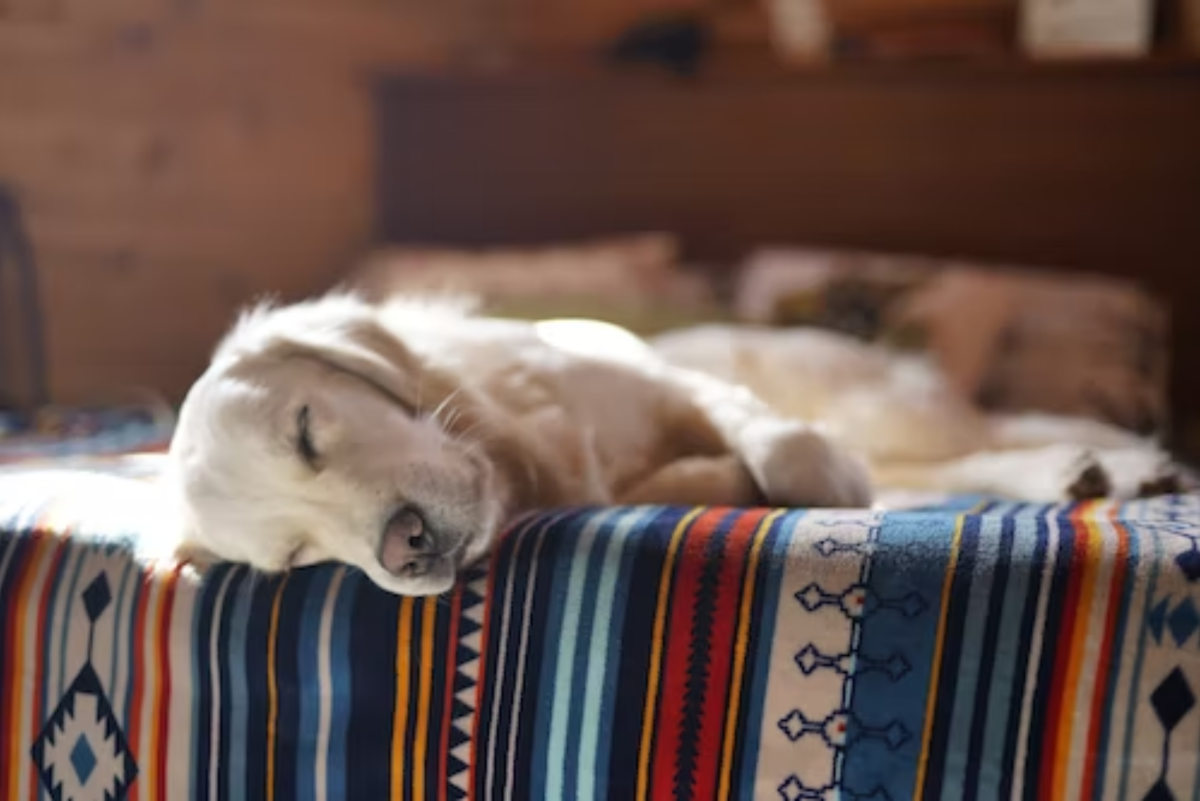What Does a Pedigree Really Mean?

Before I got my first purebred dog, I thought, as many people do, that a registered dog was somehow "superior" to those that can't be registered. I assumed that being purebred and registered meant that the dog would be healthy and temperamentally sound.
I found out I was wrong. My first purebred dog was a black and white Shih Tzu we named Missy. My husband got her for me as a Christmas present (I'd been nagging him for months for a puppy).
Missy was a sweetheart, but as she matured, she started having problems. She developed allergies and her stomach seemed especially sensitive. I noticed that when she was standing, her hind legs seemed to pop in and out of joint. My vet examined her and told me she had luxating patellas - popping kneecaps - that would probably eventually become arthritic.
When she was about 3 years old, I noticed that she seemed to get tired quickly when I took her for walks and sometimes had trouble getting up. My vet x-rayed her hips. She had one of the worst cases of hip dysplasia he said he'd ever seen.
Lesson No. 1: I learned that the American Kennel Club is a registry organization, not a watchdog of the dog breeders. If you have a dog whose parents have been registered with the AKC and both parents are of the same breed, your dog can be registered and is a purebred. But there is nothing in the registry that guarantees the health of the dogs that are registered. A pedigree is a family tree. It has its uses, but it provides no guarantees of a dog's health.
In all of the time that I'd had her, friends, relatives, and even strangers had been asking me if I planned to breed her. They all said to be sure to let them know if I did because she was so pretty and sweet, they all wanted one of her puppies. Of course, like any pet owner, this filled me with pride and where I hadn't thought of breeding when I got her, the thought had crossed my mind more than once. The discovery of her hip dysplasia was the final straw. I had her spayed as soon as possible.
Lesson No. 2: Just because a dog is purebred and registered, it isn't necessarily a good candidate for breeding. With so many dogs in rescues and shelters, it's irresponsible to produce puppies that may end up there themselves, as can happen when owners get a puppy and find out that it has medical or temperament problems that they cannot handle.
Missy lived to be nearly 18 years old. My vet said that was a miracle, considering all of the health problems that she had throughout her life. But despite her health problems, she brought me and my family a great deal of joy. One of those health problems resulted in her touching even more lives.
When she was 15 years old, Missy had a stroke. It was on the Fourth of July. My husband and I had an appointment with a dietician to discuss his newly diagnosed diabetes. When we left the house, the sun was shining and there was no rain in the forecast. Missy was deathly afraid of thunderstorms and we never left her home alone when a storm was even forecast.
Because of the arthritis in her hips and legs, whenever we left her home alone, I put her in the carpeted family room and put pillows on the steps to prevent her from trying to go upstairs by herself, since I was afraid that she would fall. After making sure she was secure in the family room, we left for our appointment.
We'd been gone for about a half an hour when a storm suddenly came up. As soon as we heard the thunder, we left and went home as fast as we could.
By the time we got home about 15 minutes later, the storm had passed and the sun was shining again. I rushed into the house and when I didn't see her in the family room, I called for her. She didn't respond. I was looking behind the sofa when my husband said, "She's over here."
I rushed to where he was standing at the foot of the stairs. She was lying on the turn in the steps, evidently having fought her way through the pillow barricade in her frenzy to get upstairs during the storm.
She just looked at me and didn't try to get up. My heart went to my throat as I picked her up and felt how limp she was. I carried her into the family room and put her on the floor. She fell over on her side and looked up at me as though to say, "I really messed up, Mom."
Since it was a holiday, my vet's office was closed, and so I called the closest Emergency Vet Hospital. They told us to bring her right in.
At the time, we suspected that she'd fallen and injured her spine. The vets at the EVH told us that they would need to keep her for observation and to administer the massive doses of cortisone she needed. She didn't have use of any of her legs.
The next morning, the vet neurologist examined her and told us that she wanted to do a procedure where they run a dye down the spine to see if there's a fracture. If there was, she told us that she needed our permission to immediately take Missy to surgery.
Since Missy was 15 years old and had a Grade 4 heart murmur, we all knew that she might not survive surgery, but there seemed to be no other choice. Tearfully, we gave our permission and asked to see her before they did the procedure.
When the neurologist brought Missy in to see us, she put her on the exam table, and that little dog mustered all of her strength to push herself up on her front legs and try to come to me. Seeing that, the neurologist said that perhaps we should give her more time.
Over the next several days, Missy improved slightly, but enough that the neurologist decided that she'd had a stroke, not a broken back.
We weren't allowed to bring her home until she could urinate on her own. Even though she could muster her strength and walk a few wobbly steps, she still was very weak and dragged one of her front legs. Still, the first thing the determined little dog did was check all of her toys, especially the big ball with an off-set motor inside that she loved to chase.
As the days went on, Missy, who'd always been a sweet, even-tempered dog, turned vicious. I could only handle her with oven mitts. My husband wore the scars she gave him like badges of honor.
Missy especially hated the scarf that I put around her tummy to hold her up when I took her outdoors, and would snarl and snap at it like Cujo. I feared that her suddenly aggressive manner was being caused by pain, and took her back to the neurologist for an evaluation. After checking her all over, she told me that Missy wasn't in any pain - she was just very angry. The neurologist asked if I was "hovering" over Missy, and I had to admit I was. "Stop it," she told me. "It will hurt you more than her, but take her out in the backyard, lie her down in the grass, and let her figure out how to get up and do her job.
I did as she told me, and sure enough, it was terribly hard to watch her lie there for a while, struggle to her feet, run like a drunk to a spot, position herself to do her job, and then fall over - then do the whole thing again and again until she got the job done.
During this time, my neighbor whose backyard joined mine often came to the fence to talk with me. "She's just like a little old lady that shakes off someone trying to help her and says, ‘I can do it myself,'" my neighbor laughed.
But as time went on, Missy got stronger and stronger. She fell down less and eventually regained use of all of her legs, including the one that she'd had to drag for a couple of months. Within six months, no one but her neurologist could even tell that she'd ever been paralyzed.
That was enough of a miracle in itself, but what happened the following winter and spring taught me even more about miracles.
During the winter months, I didn't see much of the neighbor who had come to the fence. The next spring, I looked forward to talking to her, but whenever she was out in the yard (which was rare), she just waved and didn't come over to talk. I just figured that she was busy with her kids, who all were at that age that they were involved in a lot of activities. I noticed that she always wore hats that completely covered her head, but thought that was just a fashion phase she was going through.
On day in June, I was out in the yard when her husband was mowing his yard. When he saw me, he stopped the mower and came over to the fence. After a bit of small talk, he told me that during the winter, his wife had been diagnosed with breast cancer and had to have a double mastectomy. I understood now why she wore the hats.
A few days later, when I was out in the yard, she came out of the house to talk to me. She told me about her ordeal and how painful it had been for her. "There were some days that I would wake up and just start crying," she told me. "I hurt so bad.
"And then, one morning, while I was lying in bed, dreading getting up, and crying, all of a sudden, I thought about Missy and how she would get up, run a ways, fall down, and then get up again-and I thought if that little dog can do it, so can I."
Lesson No. 3: Even if your dog-purebred or not--has health problems, or other things that prevent it from being "perfect," he or she has a mission here on earth, and that mission may not have anything at all to do with reproducing itself. My neighbor and I believe that Missy's mission was to help my neighbor through one of her darkest hours. And that was much more important than her pedigree.








